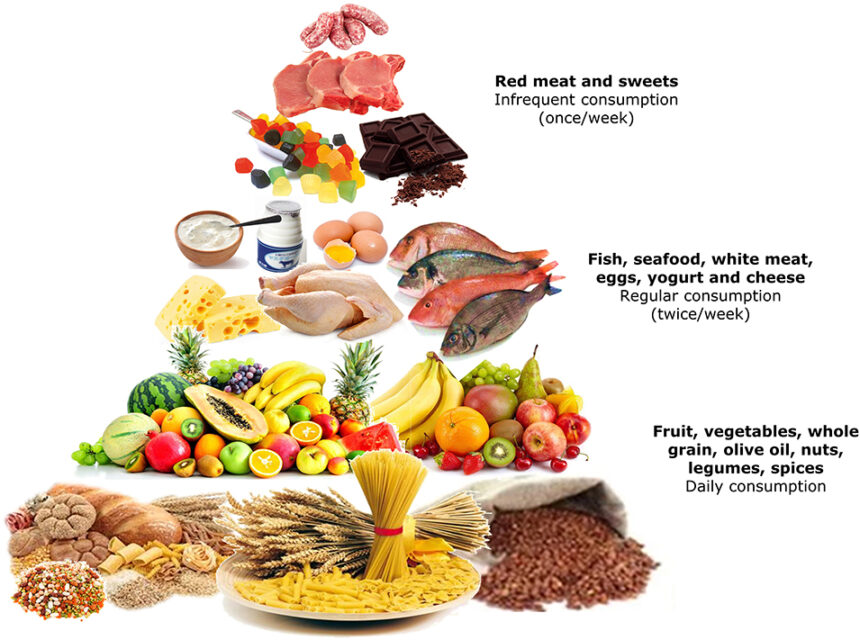Food plays an imperative role in the human body, providing crucial nutrients needed for energy, growth and repair. However, in this modern age, when food is more accessible and processed than ever before, it can be tempting to consume these out of convenience. This can lead to obesity, vitamin deficiencies, and other health problems.
But what’s the direct impact of diet on specific groups of people, such as those who are trying to get pregnant? Do food and fertility have some sort of connection? Can certain foods help boost your fertility levels? Read on for answers to all your questions.
The relationship between food and fertility
Is it true that food affects fertility? Let’s clear the air on this first – yes, your food choices do influence your body’s fertility levels. However, this is just one small part of a much larger picture (think lifestyle choices, genetic makeup, medical history, and more), and eating healthy food alone does not miraculously guarantee conception.
It is prudent to think of food as the basis of energy and nutrition in the human body. The diet that you consume contributes to how well your body will perform. Research shows us that a Western diet increases oxidative stress on the body’s cells, which can result in insulin resistance and carbohydrate disturbances. Similarly, another study (Gluten-Free Diet Indications, Safety, Quality, Labels, and Challenges by Kamran Rostami et al.) revealed that a gluten-free diet has a lower nutritional value when compared to a diet that contained gluten, and required additional supplements to fulfil the deficit.
This means that eating the right foods is crucial to ensuring that your body gets the nutrients it needs in order to function well.
To add credence to the argument that food impacts fertility, a research review published in 2018 by Audrey J. Gaskins et al., talks about the patterns discovered between certain foods and fertility levels in women. The review showed that food items rich in soy positively affected women undergoing fertility treatments, but products like red meat, pizzas, fried chicken and other processed snacks, resulted in poorer fertility. This was determined to be due to the presence of trans fatty acids.
But not all fatty acids are bad, and the long chain omega 3 fatty acids found in fish and cod liver oil seem to support womens’ reproductive abilities. Coupling these with folic acid supplements and a nutritious diet containing seafood, whole grains, poultry items and fresh vegetables, can lower the chances of miscarriage for women and improve semen quality for men.
And while some foods can positively contribute to your fertility levels, coupling this with changes in your lifestyle are equally important. Simple things such as a regulation of body weight, daily exercise, and investing in good quality sleep can go a long way to helping you in your journey to conception. Additionally, cutting back on alcohol and cigarettes, and keeping your body hydrated are beneficial when trying for a baby.
So, what foods should you eat?: Superfoods to boost fertility
You may feel satisfied after eating a cheesy pizza or an overloaded burger with a can of fizzy, but knowing the true effects of it on your body can turn that smile upside down. When experts say that food can improve fertility, they mean a nutritious meal that is packed with vitamins and minerals, rather than ultra-processed junk food. This doesn’t mean that you have to compromise on taste.
For those who want to follow a specific diet with guidelines, you may like to consider the Mediterranean diet, which is high in antioxidants. Studies show that a Mediterranean diet increases the chances of pregnancy by 40% for couples undergoing IVF. But what does it involve? A Mediterranean diet consists of fish with low mercury levels, wholegrain food items, plant-based protein foods, poultry items like chicken and turkey, and most importantly low-fat dairy products:
- Fresh vegetables and fruits
This is a no-brainer – including fresh vegetables and fruits in your diet can fulfil your body’s basic nutritional needs, without the need for too many additional supplements. If possible, spend a little extra on organic vegetables, as these are pesticide-free.
- Wholegrains
Items such as quinoa and brown rice can be a good alternative to processed bread and cereals as they contain simple carbohydrates and starch, excesses of which can be detrimental for fertility.
- Fish
Fish is a great source of omega 3 fatty acids. Oily fish like salmon and sardines are particularly good sources of omega 3.
- Poultry
Poultry like chicken and turkey can provide your body with much-needed low-fat protein. Again, where possible, choosing organic can result in consuming fewer endocrine-disrupting chemicals.
- Low fat dairy
Small amounts of milk, natural cheese and Greek yoghurt, but limit it to a few times a week
Food to avoid when trying to conceive
Are there any foods that one should skip? Yes. Here is a small list:
- Processed food items (ones which contain preservatives and additives).
- Avoid ready-to-eat and microwave foods.
- Try not to store your food in plastic containers as they contain endocrine-disrupting chemicals which can mix with your food.
- Avoid red meat.
- Avoid simple carbohydrates like white bread as they can spike insulin which can cause an imbalance in hormones – especially for women with Polycystic Ovary Syndrome (PCOS)
Please note that the Mediterranean diet is not exclusive to women, and men also need to opt for a healthy diet in order to boost fertility chances as a couple. After all, it takes two to tango!
Your fertility journey
Every fertility journey is unique and while some people may have similar journeys, their treatment options can vary. Whilst food influences our fertility, please remember that your reproductive capabilities depend on many other factors. Family medical history and chronic health conditions also play a vital role in determining your chance of conception.
If you are a couple who has been trying to conceive for over a year without any luck, a consultation with a fertility clinic in London is highly recommended. There’s no need to worry but it’s always best to seek help early on. A fertility clinic will give you direct access to experienced fertility experts who will be able to use cutting-edge testing to diagnose any underlying issues. Your consultant may suggest a series of scans alongside blood tests. Should they uncover any issues, this will allow them to create a personalised treatment plan for you.

